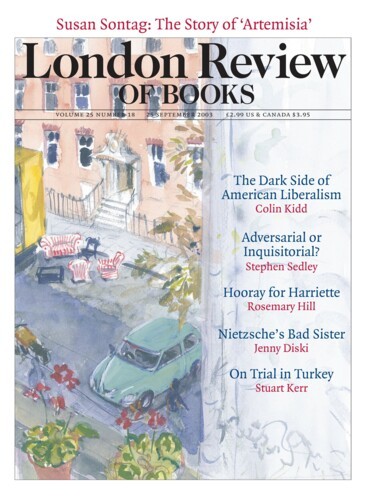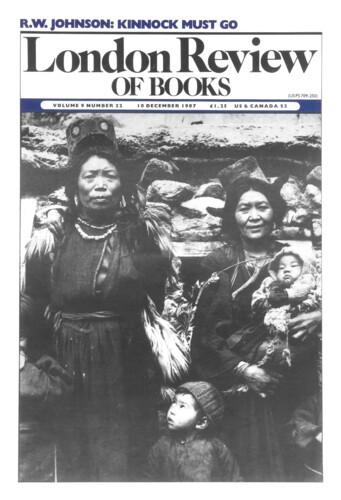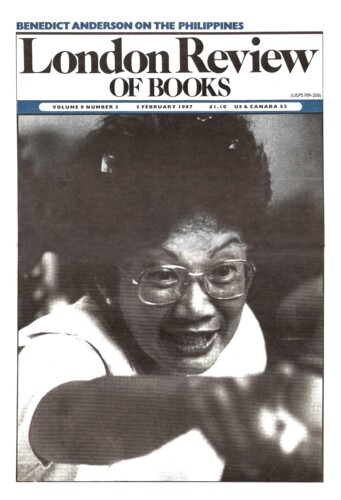A Double Destiny: Artemisia Gentileschi, and Anna Banti
Susan Sontag, 25 September 2003
‘Non piangere.’ Don’t cry. These are the opening words of Anna Banti’s novel Artemisia. Who is talking? And when? The first-person voice – that of the author – writes ‘this August day’, omitting both the date and the year, but these are not hard to fill in: 4 August 1944. The Nazi occupation of Florence, following the collapse of the Mussolini...



